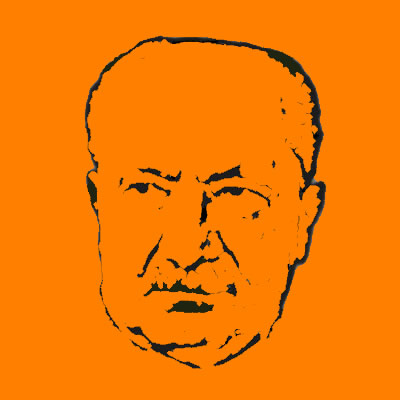Platonic dialogue as dramatic phenomenology: an exercise of application throught a comparative reading of the initial situations of Eutidemo, Menón and Menexeno.
Main Article Content
Abstract
In the present work we try to advance and deepen an adequate understanding of the expression “dramatic phenomenology”, as used by Stanley Rosen in his interpretative studies of Plato’s work. Through a reading of the beginnings of three Platonic dialogues (Euthydemus, Meno and Menexenus) we will see how the choice of the form-dialogue forces us to question the selection of moments that the historical reception has tended to consider as philosophically Significant, by contrast to those considered as “merely literary” or scenic. A proper understanding of the concept of “dramatic phenomenology” absolutely precludes a strong distinction between these two moments.
Downloads
Article Details

This work is licensed under a Creative Commons Attribution-NonCommercial-NoDerivatives 4.0 International License.
Authors retain ownership of copyright and reproduction rights.
Authors may make other independent and additional contractual arrangements for non-exclusive distribution of the version of the article published in this journal (e.g., inclusion in an institutional repository or publication in a book) as long as they clearly indicate that the work was first published in this journal.
Authors are allowed and encouraged to publish their work on the Internet (e.g. on institutional or personal websites) after the review and publication process, as it may lead to productive exchanges and to a wider and faster dissemination of the published work.
References
Canto-Sperber, Monique: L´ intrigue philosophique. Essai sur l´ Euthydème de Platon, S.E. Les Belles Lettres, 1987, París.
Collins, Susan; Stauffer, Devin: “The Challenge of Plato’s Menexenus”, The Review of Politics, Vol. 61, nº 1, University of Notre Dame, 1999, pp. 85 – 115, Indiana.
Findlay J. N.: Plato. The Written and Unwritten Doctrines. Routledge & Kegan Paul, 1974, New York.
Friedländer, Paul: Platon Band I/II, Walter de Gruyter & Co., 1964, Berlín.
Geniusas, Saulius: “The Origins of the Horizon in Husserl’s Phenomenology,” Contributions to Phenomenology, nº 67, Springer, 2012, Dordrecht.
González, Francisco J. (ed.): The Third Way. New directions in Platonic Studies. Rowman & Littlefield Ed., 1995, New York.
González Guardiola, Joan: “Qüestió del “què” i qüestió del “qui” en l’ “Eutidem” platònic”, Anuari de la Societat Catalana de Filosofia, vol. IX, pp. 27 – 37, 1997, Barcelona.
Lebenswelt, Anuari de la Societat Catalana de Filosofia, vol. XXIII, pp. 155 – 169, 2012, Barcelona.
Guthrie, W.K. C: Historia de la filosofía griega, vol. IV, Ed. Gredos, 1990, Madrid.
Heidegger, Martin: Wegmarken, Gesamtausgabe Band IX, Vittorio Klostermann, 1976, Frankfurt am Main.
Husserl, Edmund: Die Krisis der europäischen Wissenschafen und die transzendentale Phänomenologie. Eine Einleitung in die phänomenologische Philosophie, Hua VI, (ed. Walter Biemel), Martinus Nijhoff, 1976, La Haya.
Kahn, Charles H.: “Plato’s Funeral Oration: The Motive of the Menexenus”, Classical Philology, Vol. 58, nº 4, The University of Chicago Press, Oct. 1963, pp, 220 – 234, Chicago.
Pappas, Nickolas; zelCeR, Mark: Politics and Philosophy in Plato’s Menexenus, Routledge, 2015, New York.
Rosen, Stanley: Plato’s Sophist. The Drama of Original & Image, Yale Univ. Press, 1983, Yale.
Sales, Jordi: Estudis sobre l´ensenyament platònic I. Figures i desplaçaments. Ed. Anthropos, 1992, Barcelona.
Sales, Jordi: Estudis sobre l´ensenyament platònic II. A la flama del vi. Barcelonesa d’Edicions., 1996, Barcelona.
Scolnicov, Samuel: Plato’s Metaphysics of Education, Routledge, 1988, New York. szlezák, Thomas A.: Leer a Platón, Alianza Universidad, 1997, Madrid.
Strauss, Leo: Studies in Platonic Political Philosophy, The University of Chicago Press, 1983, Chicago.
Walton, Roberto: Intencionalidad y horizonticidad, Editorial Aula de Humanidades, Universidad San Buenaventura Cali, 2015, Bogotá.

